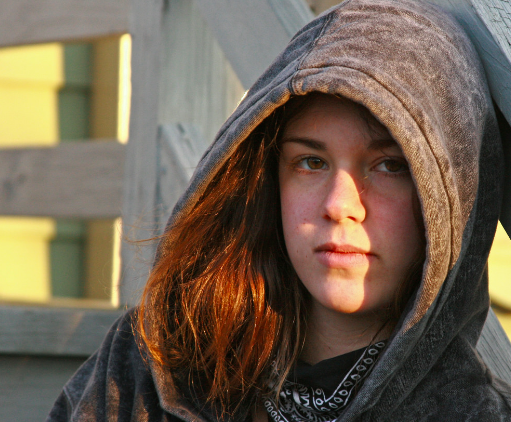I met Caroline when she was in the latter part of eighth grade. She struck me as both fragile and determined— a mix of insecurities and an exceptionally strong will.
Caroline struggled socially. She pursued friendships in a way that sabotaged their success, coming on too strong with demands that a potential friend quickly become an exclusive bestie. And with boys, she stuttered and stammered, desperately longing for a “boyfriend” but incapable of having a relaxed conversation where she could simply be herself.
But soon after we began working together, I discovered that there were more serious issues at play. At the beginning of the school year Caroline had decided that her social problems could all be attributed to her weight. Even though she knew she was an appropriate size for her height and body type, comparing herself with models in teen magazines led her to decide that the reason she had failed to succeed socially was that there was simply too much of her.
She began her quest for some ideal body by announcing to her mom that she was going to be eating healthier foods. “Great!”, her mom said. “It’s about time!” Because Caroline had loved her junk food, her mom thought she was moving in a good direction.
Caroline then started working out obsessively. Since Mom was avid about health and fitness, she thought her daughter was just following suit.
Then Caroline began cutting out foods: first sugar, then fats, then bread and pasta.
When she finally told me about the disgust she felt toward her body, she broke down in tears, telling me that even though she was constantly hungry (she confined herself to just one meal a day which she ate standing up in the hope that it would burn more calories) she wasn’t losing weight.
Here is the thing: Kids who are struggling are often very skillful at making it appear as though they’re all right. Caroline’s grades were excellent. She was active — working out almost daily. She still argued with her brother and sister as usual. Her mom thought her issues were simply her social awkwardness. But on the inside, Caroline was in danger. Left untreated for three years, eating disorders can become a lifelong affliction.
A few years ago I partnered with the amazing Glennon Doyle Melton for a series on parenting. There is a line in one of Glennon’s books that comes to me again and again when I work with teens whose parents are surprised when they find our their youngster is engaging in self-harm, or is struggling with depression, or battling an eating disorder:
People who need help sometimes look a lot like people who don’t need help.
Parents: please pay attention to your instincts. If you sense thatsomething with your youngster isn’t quite right, don’t look the other way. As I have been preparing for an upcoming series on raising teens and tweens (please click here for info), I have had in-depth discussions with guests like eating disorder clinician Katie Bell from the Healthy Teen Project, and Alanis Morissette who shared with me her early challenges with bulimia.
Kids who need help sometimes look a lot like kids who don’t need help.
When Caroline told me what was going on with her “dieting”, I asked her permission to involve her mother so we could get her the help she needed and deserved. She agreed. Her mom needed a little help reconciling how well Caroline appeared to be doing academically with the trouble she was in emotionally but she quickly came on board. She moved her daughter into treatment with experts in the field and thankfully, Caroline was able to stabilize.
Once she was in treatment, Caroline’s mother confessed to feeling tremendous guilt over having missed the cues that her daughter had developed disordered eating habits. I listened and normalized — it is very common for kids to effectively hide their disordered eating — and urged her to get additional support.
It isn’t easy to parent an adolescent. They are programmed to fight fiercely for their independence and that means they may become more secretive about what’s going on for them emotionally.
But it is our job — and it’s never easy — to both give them space and maintain the kind of connection that allows them to tell us their truths, even when they are impossibly difficult to hear.
For more support, please visit this page to join me for an outstanding free online series with experts like Dr. Dan Siegel, Byron Katie, Michele Borba, Prince Ea, Dr. Lisa Damour and many more: Raising Tweens and Teens. Less Drama. More Joy.
Originally published at medium.com


